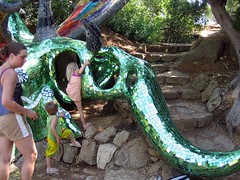Eating the Forbidden Fruit
I always find it fascinating that in one aspect, all adults act like obstinate children without being aware of it. We judge each other.
The only sermon I remember from my church-going days was about the Ten Commandments. The preacher had a revolutionary approach to them, in that he said that you do not HAVE to obey them. He said the real meaning was that you could ignore them, but then you would have to take full responsibility for your actions. That made sense to me.
I realized in later years that the first commandment in the Bible is actually “Thou shalt not eat from the tree of the knowledge of good and evil” (Gen 2:9). I thought that means we must not for a moment think that we have the capacity to decide whether something or someone is good or evil.
Why is it that we are not allowed to eat this symbolical fruits? Is the world not a better place when we all agree on what is right and what is wrong? Surely we all have a moral compass that we apply every day, and that is some form of judgment?
I do not like being told what to do or not to so, so I became curious about this, and did some research about this magical tree.
Like most symbols in the Bible, it appears that this image of a tree with the forbidden fruit existed even before biblical times.
In Greek mythology the Garden of the Hesperides is the grove that belonged to the goddess Hera. When Hera accepted Zeus as her husband, the goddess Gaia gave Hera some branches with golden apples on. Hera planted the golden apples and the result was a grove of apple trees that gave immortality to those who ate the apples. The Hesperides were given the task of tending
